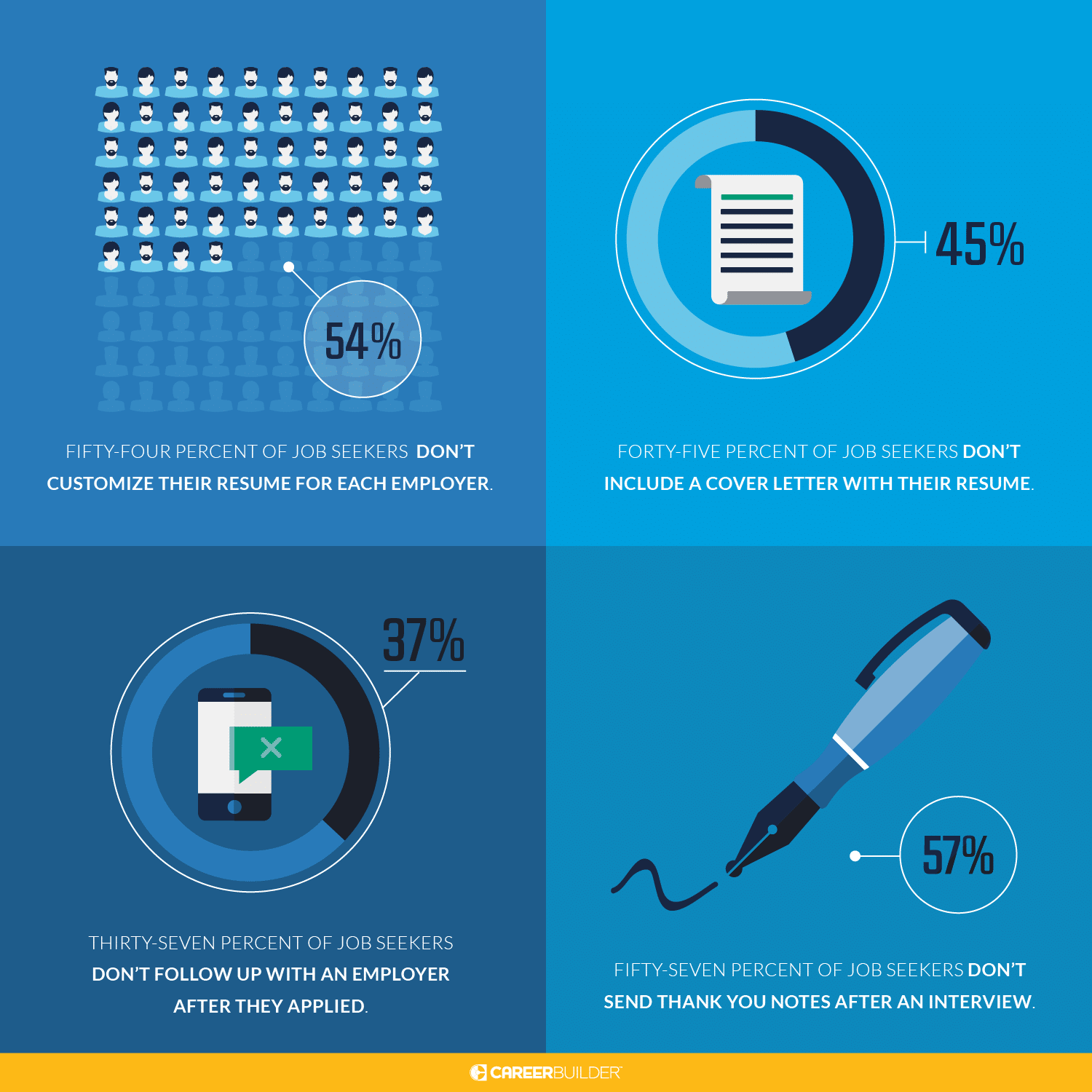The interview process can be extensive, with multiple interview sessions, required personality and skill assessments, and delayed response times. Several candidates never hear back from interviewers, leaving many to wonder what they could have done differently to set them apart. While not required, thank you notes are a guaranteed way to leave a lasting impression on your interviewer and put you ahead of the rest.
According to CareerBuilder, 57% of job seekers don’t send a thank you message after an interview. A thank you email is one of the biggest closers in the interview process, allowing you to review discussed items and show your excitement. This is also another opportunity to emphasize your qualifications, mention anything you forgot, and keep your name at the top of the list throughout the decision process.
Be Prepared
Sending a thank you note should be your first step after any interview. A quick email is a great way to show appreciation for the interviewer's time and consideration, plus it’s just polite. Just as you would prepare for an interview, you should be ready to send a follow up memo as soon as you’re able. In order to make your message relevant, it’s helpful to take notes during your interview so that you don’t have to worry about forgetting something. Make sure to mention that you are taking notes, as that shows you are focused and genuinely interested in retaining the information they are providing. Make your notes quick and short so that you are still engaged in the conversation and not falling behind. If you feel that they are supplying a lot of important information or you’re confused, ask them to reiterate in your thank you email or find your own answers by doing some research on their website. The more engaged you appear in the interview, the more prepared you can be in your follow up.
Timing Matters
Hiring managers come across hundreds of resumes in the interview process, making it difficult to remember every single person they speak to. This means that timing is everything. Thank you messages should be sent within 24 hours of the initial conversation, keeping your name higher up in their inbox and at top of mind. Ask interviewers for a business card or way to connect with them at the end of the meeting, and ensure you have the correct spelling and contact information. If you forget to do this, don’t stress! Reach out to your recruiter or do some digging online.
Customize it
Just as they receive hundreds of resumes, interviewers and hiring managers see their fair share of thank you emails. Customize your message to help set yourself apart, expressing your authentic interest over the role by citing specific examples from your notes that were discussed during the interview. This is also a great time to introduce new material that further validates your qualifications and experience. Use small details you have in common with the interviewer, such as a shared hobby or schooling, to personalize the note to each interviewer and demonstrate your attention to detail. Consider including a link to an online portfolio or shared folder for more work examples.

Keep It Professional
Some interviewers are more casual than others, but it’s important to maintain a professional demeanor throughout the process. Always, always, always follow up. Though rare in today’s digital age, some hiring managers may be more old-fashioned and would prefer a mailed thank you letter. If you feel this is the case, still send a thank you message and make it clear that their personalized letter is en route. If you’ve met multiple people during the interview stage, be sure to send thank you notes to all parties involved. This way, you are able to gain more connections in the company you’re applying for, and possibly discover more opportunities in the future. This is a great opportunity to show that you will be able to represent them professionally. Before sending, read over your note several times to eliminate any chances for grammatical issues and spelling errors.
Thank you notes should be thought of as a required step in the interview process. There is really no downside to sending a follow-up email. At worst, you’ve wasted 5-10 minutes on advocating for yourself and being polite; at best, it could be the factor that pushes you to the top of the list. Even if you’re not a good fit for the role you are applying for, hiring managers and interviewers may remember you for your professionalism and respect when another opportunity opens up. In order to set yourself apart, you must be prepared, respond in a timely manner, customize your message, and stay professional.

 “What’s your biggest weakness?” Common wisdom says you should answer with a strength posing as a weakness; you care too much, work too hard, etc. These answers come off as insincere.
“What’s your biggest weakness?” Common wisdom says you should answer with a strength posing as a weakness; you care too much, work too hard, etc. These answers come off as insincere.
